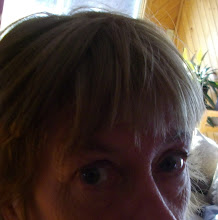Bruce Lipton and Steve Bhaerman, authors of Spontaneous Evolution: Our Positive Future and a Way to Get There from Here, write that today's crises are part of a natural process - clearing out what no longer serves us to make room for a new way of being. Are they cockeyed optimists or do they see things others miss?

For this article in AlterNet, Terrence McNally asked each of the authors what led them to the work they are doing now.
Bruce Lipton: While doing research on muscular dystrophy and cloning stem cells in 1967, Lipton discovered something he describes as mind-boggling: that genetically identical stem cells, when placed in different environments, will form widely different types of body cells. "I was teaching medical students that genes control life, yet my research said that the genes were actually controlled by the organism's response to the environment."
Steve Bhaerman: After an idealistic teaching career in the 60s & 70s, many years of spiritual seeking had left Bhaerman still longing to close the gap between ideas and practice. "I thought it would be interesting to write a book about healing the body politic, applying a biological or medical metaphor to the wider world. When I read The Biology of Belief and met Bruce, I realized that he was the guy I was meant to do this book with."
The authors say that although the three questions that any belief system needs to ask (Why are we here? How did we get here? How do we make the best of the situation?) remain constant over time, the answers must change - that humanity must embrace a worldview based not on survival and competition, but on cooperation and community.
This article is both painful and inspiring to read, and impossible to summarize without leaving out something important. Here's a particularly poignant segment:
Once we recognize how much of our reality is programmed, we can begin to forgive ourselves and forgive others. We can begin to recognize that one thing we have in common is that we're all programmed. That recognition is a first step outside the matrix of controlled beliefs.
The reality we have in common is not in our heads, it's in our hearts ...When you create situations where people can communicate and listen in a respectful way, an interesting thing happens. We begin to focus on what we have in common as humanity. We begin thinking like a species instead of like individuals.
The interview concludes:
In your body, no particular cells go hungry. Every cell must be fed for the body to be in harmony. When we begin to treat all humans as cells in one body, and make sure that they all get the basics in life, we create the foundation on which to build an exciting future.
Every cell counts. Every human counts.
~~~~
love is but a song we sing
fear's the way we die
you can make the mountains ring
or make the angels cry
- Youngbloods
~~~~

No comments:
Post a Comment